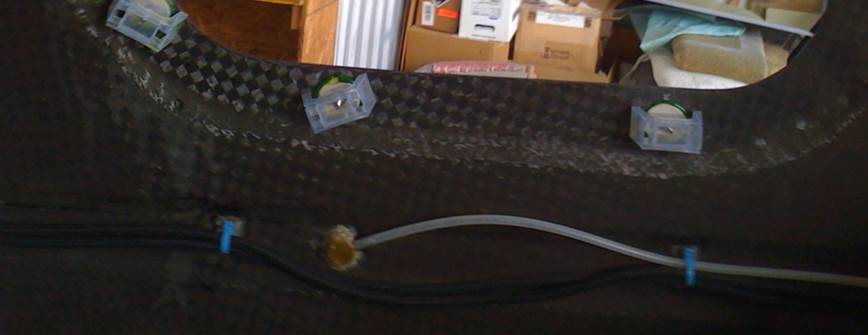Steve, Bill and Charley,
Thanks guys for your responses. Lots of good information. I think I’ll go on the KISS principle, and just make sure I put a decent upward line from the ports and then “T” both lines into one.
I really appreciate your support.
Rob.
From: Lancair Mailing List [mailto:lml@lancaironline.net] On Behalf Of Charles Brown
Sent: Friday, 22 August 2014 7:10 PM
To: Lancair Mailing List
Subject: [LML] Re: Pitot and static system water traps
Rob, if you're going to descend through rain, you need the static lines to go uphill at first as others have shown in pictures. Here's an example (my airplane) of *insufficient* bend: Although it looks about like the graphic in the Legacy manual, my system does occasionally collect water. As a result, the sensed altitude gets notchy as enough static pressure has to build up to shove the water out of the way and burp an air bubble past it. Then there's a 100-foot jump in sensed altitude. No big deal in most conditions, but no good for precision approaches, and also causes the pitch autopilot to osciilate slightly. It's simple to blow it out with compressed air, but obviously something to avoid entirely by good design.
Legacy

Date: August 21, 2014 11:10:44 AM CDT
Subject: Pitot and static system water traps
My question to all of you who are already flying, is …
1. How important is it to have a water trap in the static system?
2. If you have balanced static ports Tee’d into one line through to the panel, is one required for each port, or should there be just one for the whole static system?
3. Is it best to use the commercially available trap, or is there a simpler way of doing it?
4. Should there be a similar system in the pitot line?